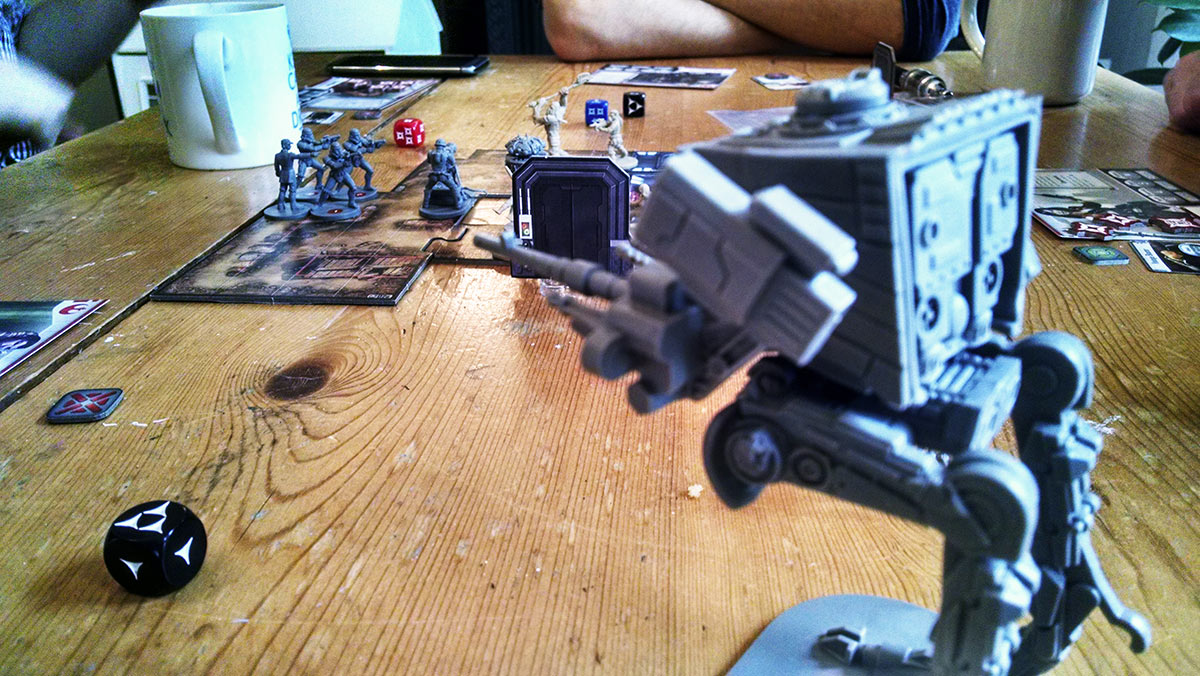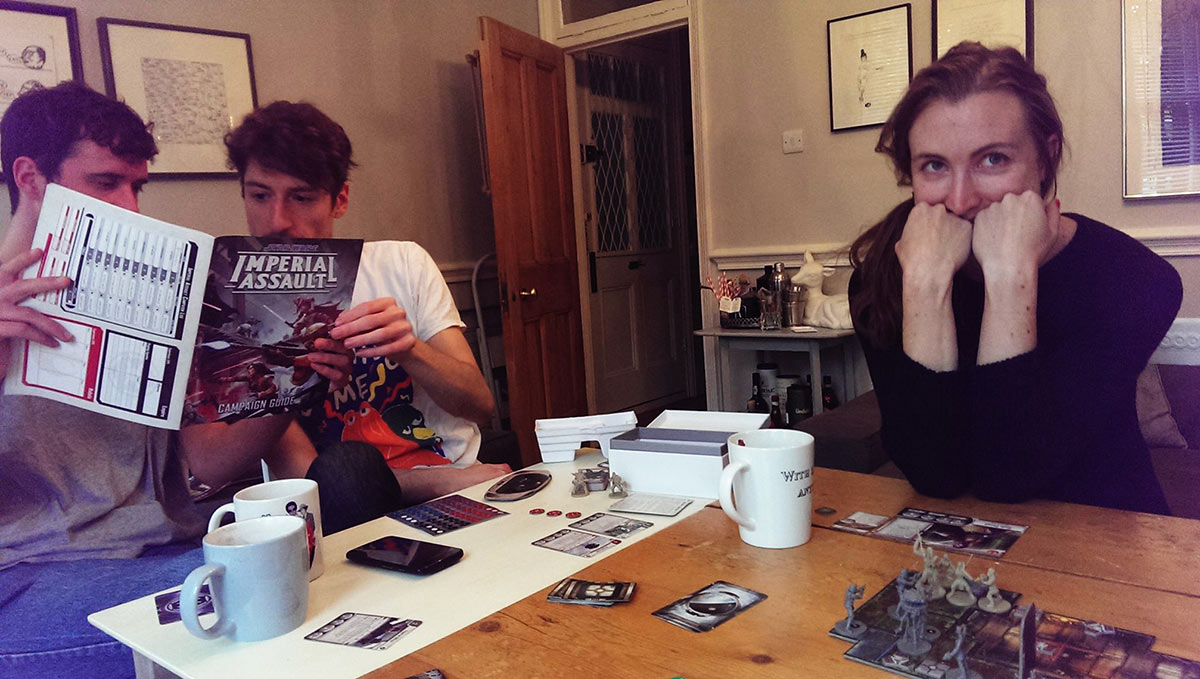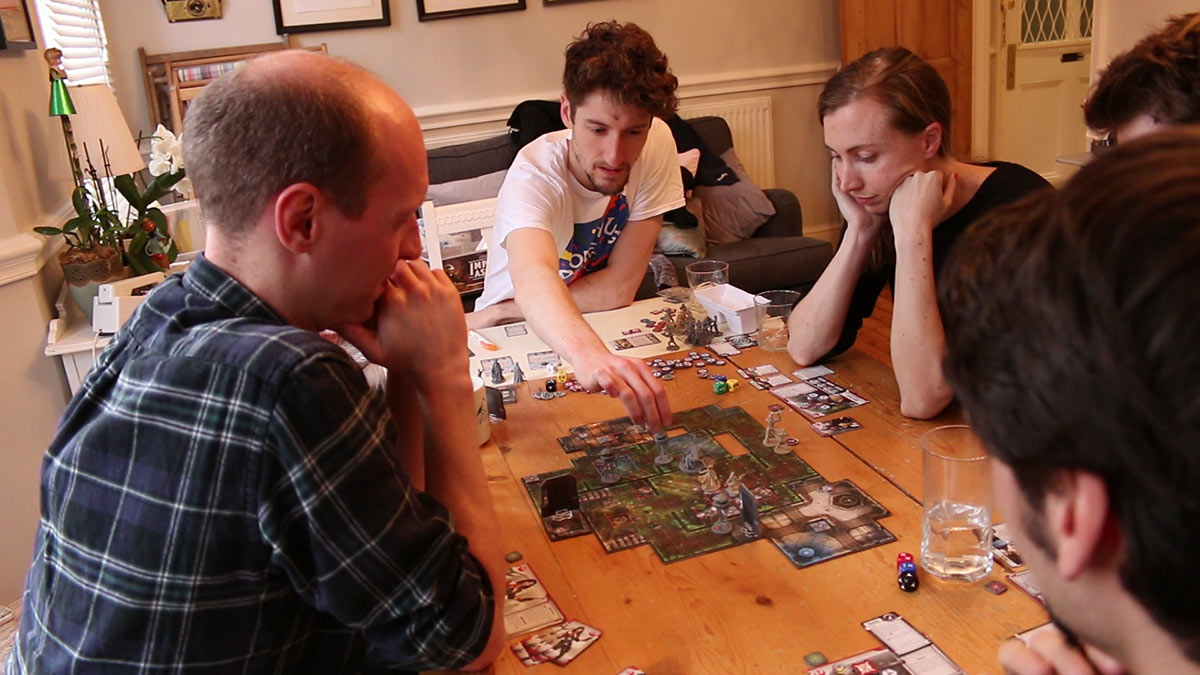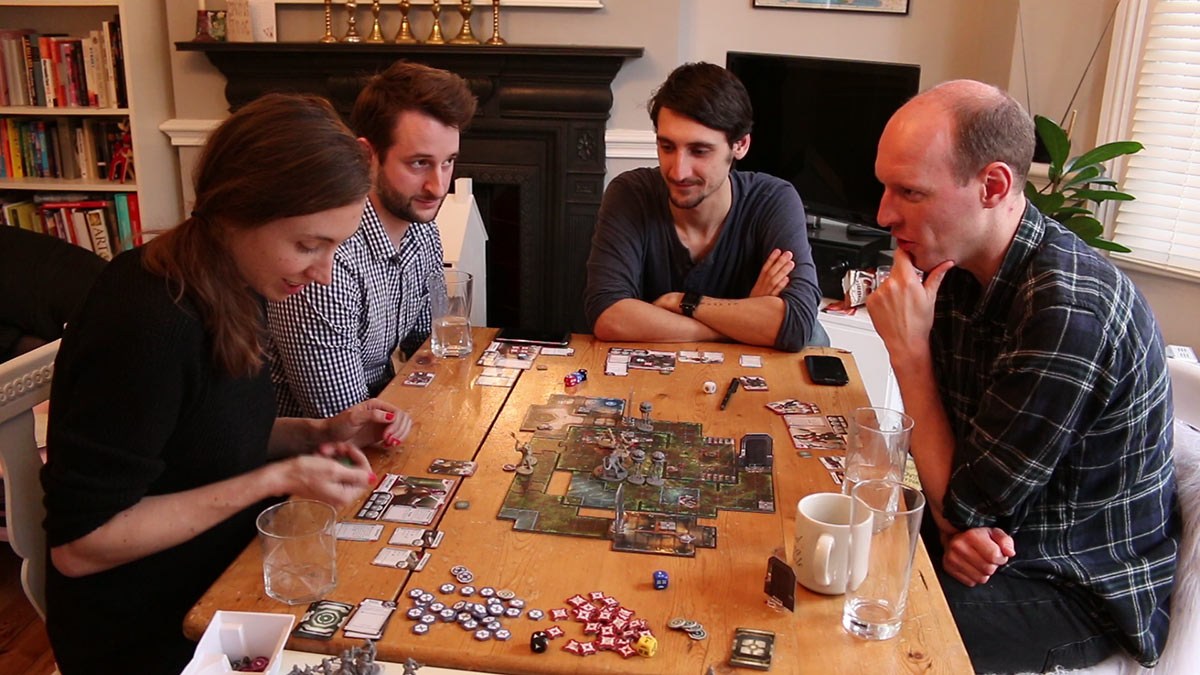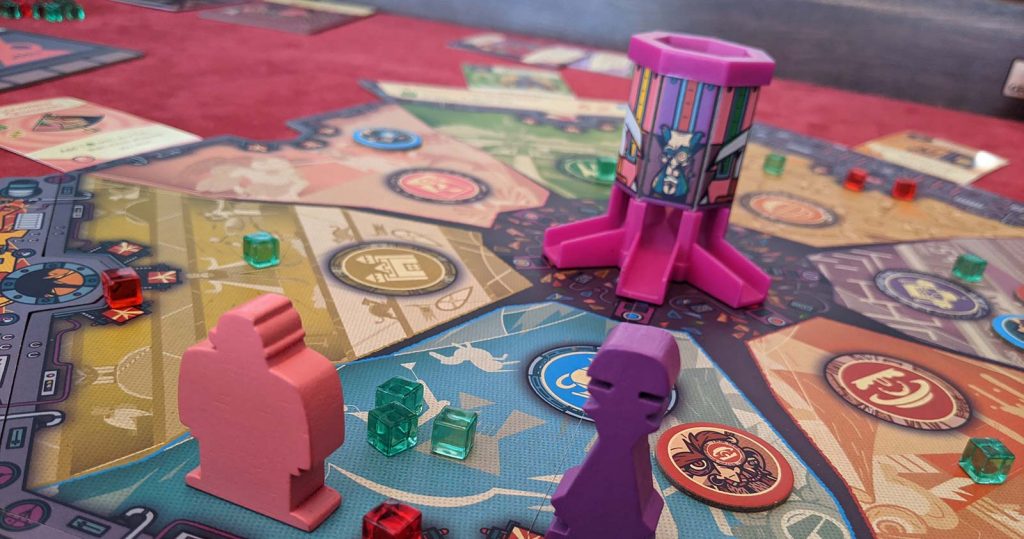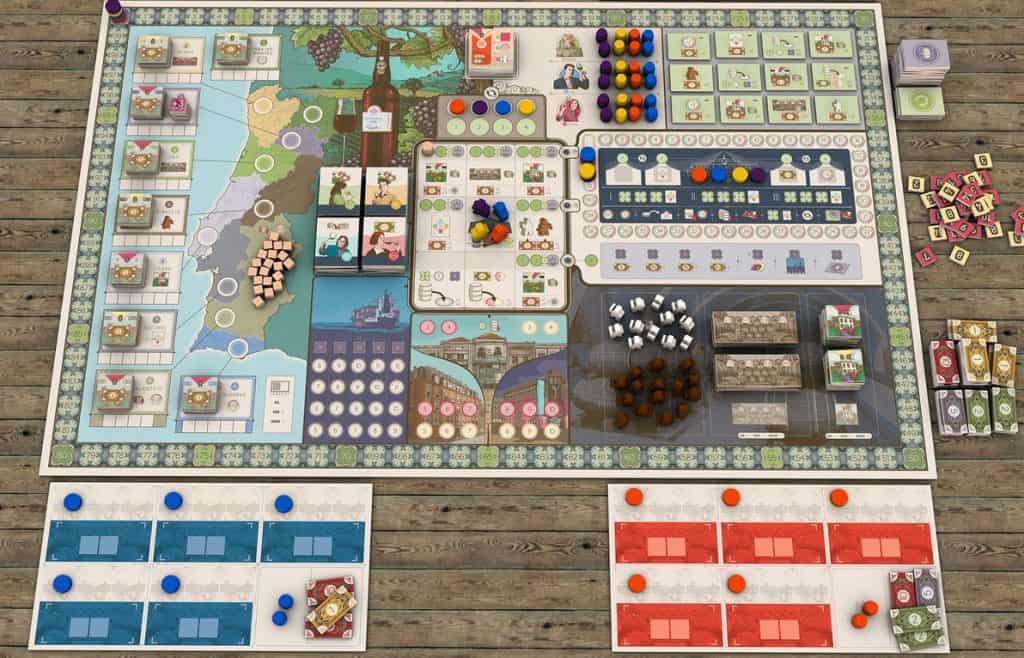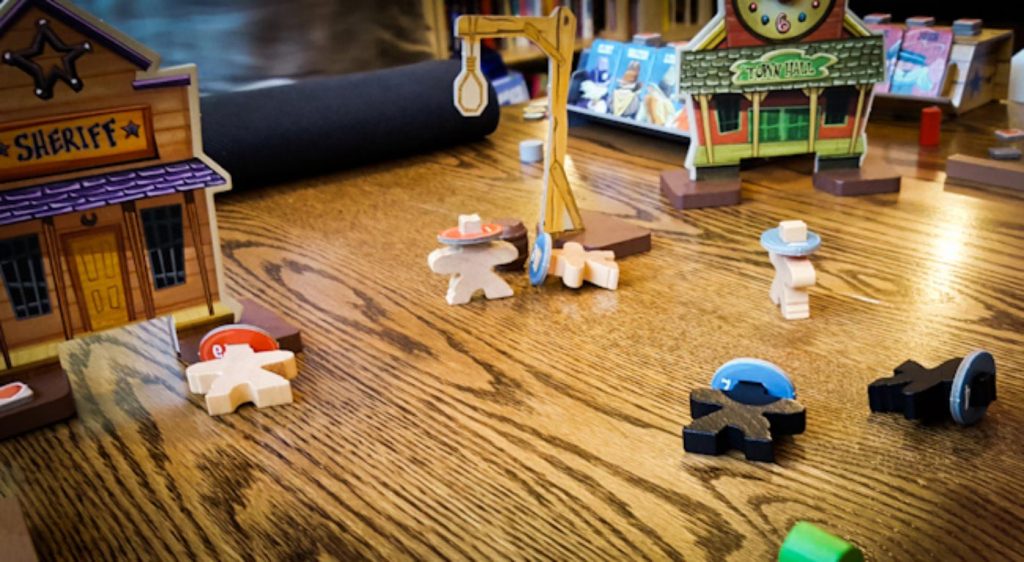Matt: Initially, I didn’t spot the mistake. Enthusiastically firing out a message that proposed a date for a day of Star Wars: Imperial Assault, I was met with five excited replies. I looked at the box. “2-5 players”. Bums.
Telling one soul that Christmas was cancelled while their sisters unwrapped a BMX mountain felt too cruel to be any kind of option – I had to make six players work.
But this wasn’t just another simple party game: Imperial Assault had specifically been balanced not only on a mission-by-mission basis, but to work across a much wider campaign. I studied the game’s multiple manuals with incredible focus, poked around online for suggested advice, and gradually crafted up a system I felt fairly confident would pretty much work. A bit less money for the heroes here, a few extra deployment points for the imperials.
At the last minute, I bottled it. What made me think I was smart enough to re-balance a game I’d barely played? Dropping the Cardboard Macgyver act I went with the only other viable solution, and one that I expected wouldn’t be much fun: The Imperial player would become the Imperial TEAM.
Splitting the units up roughly down the middle into squads that we each individually controlled, we cackled at our hidden hand of units that we might potentially deploy. Darth Darth and Darth Doff: Partners in Space Crime. The rebel scum shared in the misery of their failures while the empire stood up and did proper high-fives. While our plucky heroes discussed deployment and tried to devise a mission plan, we insidiously poked at hidden text in the manual.
Should we lock them in and gun them down, or deploy another squad of Stormtroopers behind them? Whispers. Pointing. Cackling. More cackling. Evil loves company, and we were on a roll. Splitting the forces up and working as a duo is such an immediately easy fix that I’m amazed it wasn’t listed as an option in the manual. It even turned out to be functionally invaluable: Only the Imperial player can safely look at the map when setting up missions, so a second pair of eyes and hands speeds things up substantially.
It’s also an element I wouldn’t have thought of, but being able to hand the Imperial reins over to someone else for a bit left me with tons of time to sit and check the manuals, removing that traditional pace-killing sludge where hours are lost while one player “just checks one little thing”. A tag-team of evil makes teaching much easier, but crucially it just ends up being more fun.
When Darth Doff left, things went downhill. The empire was still unequivocally winning – crushing rebel scum into a chunky paste was almost starting to feel like a routine, but the Sith Lord who’d sat beside me in combat had unfortunately nipped off to have tea with his mum. Instead, I was faced with the cold reality of what it’s like to be evil when you can’t just avoid the people who suffer and chortle with your mates while sipping champagne.
Dejected faces. Misery. Occasional moments of explosive joy when the heroes managed a minor form of victory, their eyes gleefully cutting me with unspoken expletives. Everyone – myself included – was still having a marvellous amount of fun, but a line in the sand had clearly been drawn. It wasn’t the ire aimed at me that caused bother, but my sudden inability to enjoy their defeat.
I was cackling on the inside, naturally. Darth Darth grows stronger with every strike. But when sat at a table with no-one other than people you’re directly causing grief, it feels a bit awkward to stand up and dance while singing about your tactical nuance and overall superiority. It didn’t stop me, obviously. It just felt a bit awkward.
It might just be empathy pissing on my cornflakes, but eventually I ended up wanting them to beat me, if only to put an end to the faintly-real sense that everyone in the room was quietly starting to hate me. Well, not me – Darth Darth. But still.
Darth Doff will return in “The Empire Strikes Back Again But Hopefully Not Quite As Hard Or For Quite As Long”, and I can’t wait to get back to playing the campaign with a full X and Y axis of absolute evil. Sharing the joy of success is one thing, but I can’t understate the simple value of making the game just a bit less intense through this diffusion of responsibility. I didn’t kill the wookie. We killed the wookie. And now we’re going to stand up, high-five, and do a big laugh.
Quinns: Heh. Interesting to hear that Descent’s biggest flaw is back again with Imperial Assault.
Matt: What’s that then?
Quinns: It’s a story-driven fantasy adventure! Except the dramatic struggle it depicts can collapse into one side slam-dunking the other side’s lunch into a bin, over and over again.
It’s the weirdest system. 99% of the games we love on SU&SD have us delighting in their systems. With Descent & Imperial Assault, you end up hoping for a deus ex machina. The heroes are surrounded… there has to be a way out! And there never is, because it’s a board game and not a film.
The most important rule when you’re playing one of these campaigns isn’t in the manual. It’s that the more you’re winning, the more you should drop tactics like a hot stone and adopt a cocky persona. Has Darth Vader pummeled the heroes in every single encounter? Next time they meet, have him leave cover and walk towards the heroes down the middle of a corridor as if they’re nothing. And in doing so, give the heroes a chance to get clever.
Matt: Makes sense. These games are at their best when both sides are cheering for one another!
Quinns: Congrats on writing our first ever house rules article, though. Although in doing so you’ll have invalidated Imperial Assault’s warranty.
Matt: What?! What do I do if one of my dice stops working?
Quinns: I know a guy in Lewisham market. I’ll hook you up.


